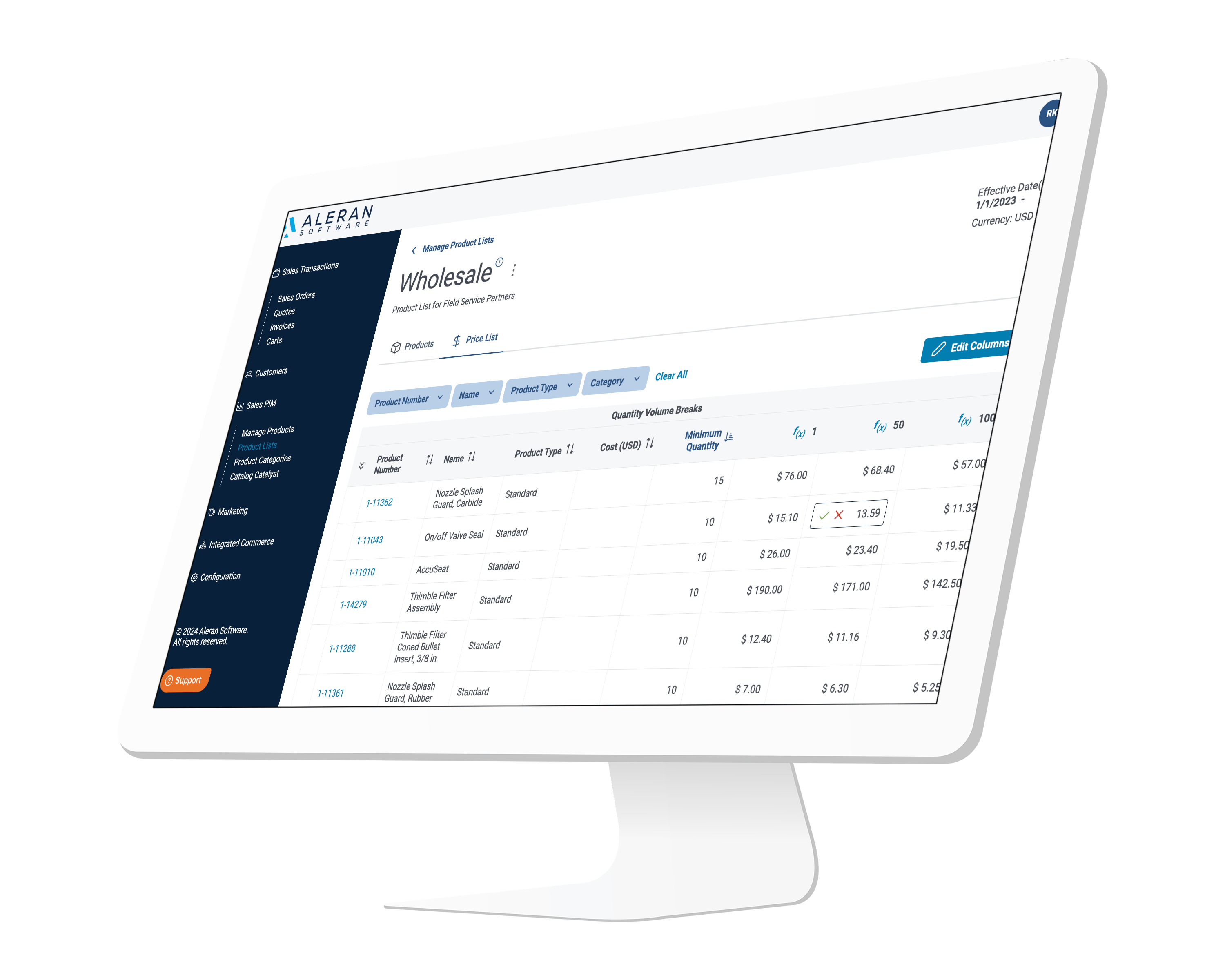By 2024, B2B online marketplaces are predicted to account for 30% of all digital B2B sales. In the last decade, much of this market growth has been driven by significant, horizontal marketplaces that seek to offer something for every possible audience.
Amazon, eBay, and Alibaba often dominate the marketplace conversation because of their sheer magnitude. But in recent years, there’s been a growing opportunity for specialized marketplaces to succeed in B2B e-Commerce. Players increasingly operate within niche verticals, drawing in and capitalizing on a concrete customer base.
Adapting your business to become a vertical B2B player is a lucrative strategy as this market continues to grow and customers seek alternatives to traditional, horizontal e-Commerce platforms. Here’s what you need to know about vertical marketplaces, including how to succeed.
What are vertical marketplaces?
Vertical marketplaces, also known as niche marketplaces, are digital forums where businesses sell goods to a specific audience — often within a single vertical.
You know the adage “jack of all trades, master of none?” That’s kind of what the e-Commerce giants have become. When an audience has specific needs dictated by their industry or experience, the one-size-fits-all approach of an Amazon or an eBay doesn’t always succeed. Because these retailers try to be everything to everybody, sections of the audience feel ignored or diminished.
Think of it like this. When your television breaks altogether, you might go to a Target or a Walmart to buy a new television. But when you want to fix the tv and just need one small part, well, you’re probably better off going to a tv repair shop if you can find one, as they have the expertise to cater to your particular needs, and you can save hundreds of dollars in doing so…
This concept applies whether you’re selling vacuums or, more likely in the modern era, offering a highly effective yet targeted solution for businesses. Organizations don’t always need an Amazon. They often need someone to offer products and services that cater to their business’s focus. They require an expert who understands their industry inside and out and gives them choices that make sense to their customers and their long-term strategy.
When you sell within a niche marketplace, you can create more targeted and effective customer experiences than would be possible in a horizontal marketplace. When B2B buyers are committed to researching and purchasing their products and services online, vertical marketplaces build trust and create a sense of community and connection that the marketplace giants lack.
Finally, by making it easy to discover new suppliers, vertical marketplaces help increase discoverability and, ultimately, market share. If you can become the go-to seller for a specific type of organization or solution, you can more easily be found by search engines, social media, and other outlets. Forget just becoming another third-party vendor on Amazon; you’ll be the place your customers search out their solutions.
The Power of Self-Service
For too long, B2B sellers struggled to catch up to their B2C counterparts in the e-Commerce space. That’s because B2B purchases can be expensive, have a lengthy purchase cycle, and may have contracts attached.
These old habits are finally beginning to change, thanks to the ease of creating vertical marketplaces even for complex products and services. Research shows B2B buyers will choose suppliers who provide outstanding digital experiences at twice the rate as those who don’t, and B2B sellers are responding by finally bridging the long-existing gap.
Providing a satisfying self-service experience is key for today’s B2B buyers, especially as digitally-driven, tech-native millennials climb the career ladder into leadership positions. These customers expect their B2B experiences to be as streamlined and automated as B2C — even when making large purchases or placing a reorder. If you have no online marketplace or you require the user to talk to a salesperson, go through a demo (or two, or three), and jump through any other hoops to make a purchase, the risk of them going elsewhere increases.
A vertical marketplace, on the other hand, enables self-service and eliminates roadblocks to purchasing. Rethinking the entire sales funnel in the name of an improved customer experience may seem like a daunting proposition, but today’s B2B buyers demand nothing less.
The Benefits of Vertical B2B Marketplaces (To Buyers and Sellers)
Vertical marketplaces offer sellers a range of e-Commerce tools and features to help them manage their accounts and grow their businesses. The best part? These bonuses appeal to customers too. It really is a win-win proposition.
-
- Improved business efficiencies — Sales and procurement teams often spend hours on repetitive tasks. Marketplaces can introduce automation for many common, time-intensive steps, thereby freeing up associates to spend time in other parts of the business. Think about such things as commissions reconciliation and manual data entry, everything from notes about sales calls to ensure that cost estimates are accurate from contract signing to processing via accounts payable. If just some of these processes can be automated or eliminated entirely, you can save extraordinary amounts of money, thereby increasing profit margins for your business.
-
- Price transparency — Salespeople love unclear pricing structures. The modern B2B customer does not. Marketplaces can introduce price and product transparency, something of critical importance to today’s B2B buyers, who spend more time researching purchases, doing price comparisons, and reading reviews before placing an order. You see this in the rise of B2C companies promising to eliminate the sales experience in everything from car-shopping to house-hunting. B2B is finally starting to get the hint as well. If you can offer a simplified checkout process whereas every other competitor has a complex sales structure, you’ll gain a massive advantage and become a force to be reckoned with.
-
- Accelerated digital transformation — For businesses transitioning to B2B e-commerce or trying to reach new audiences, a vertical marketplace provides access to the kind of digital sales tools and features you need to better meet the needs of today’s B2B buyers. The modern B2B buyer doesn’t want to wait to talk to a salesperson in order to buy a product. If they have a question, they want a chat program on a website that gets them their answers immediately. If they want to buy a software-as-a-service (SaaS) offering, they want to enter their number of seats and get started today.Your growth hinges on acquiring and keeping these customers, and doing so sets you up for today’s digital frontier.
A growing B2B marketplace opportunity
With digital technologies and e-commerce changing the way industries sell their goods and services, particularly within global manufacturing and distribution, vertical marketplaces will continue to proliferate. It’s time to start thinking about how your own marketplace might work and put together the functionality necessary to get there sooner rather than later.
At Aleran, with integrated order management software and automated upsell features, we’ve created a marketplace builder to support trade shows, showrooms, and other B2B vertical marketplaces. Our commerce solution gives you all the tools you need to quickly and effectively recreate a wholesale showroom or implement a vertical marketplace experience online — no cost-prohibitive builds, no months-long integration cycles, and no IT headaches.




